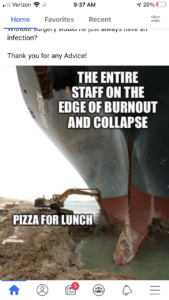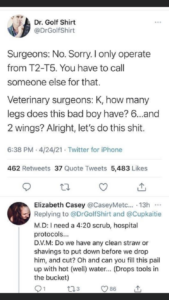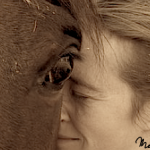Vet Life Skillz
| March 29, 2022 | Posted by Melinda under Uncategorized |
I wanna go to vet school! What classes/grades do I need, and can I come volunteer in your clinic for vet school experience????????
This is the second-most common work-related conversation in my life. Multiple times a day. All day.
This is not a post about what classes to take and what extracurriculars to focus on. Honestly? None of that matters. None of it. This post is about all the other stuff that does matter that no one tells the young budding animal doctors (and their parents). Heck, this stuff might be important no matter what career you fall into.
- Learn how to @@$!#$^& type.
I’m shocked how many people don’t know how to type. You have to be able to legit type. I’m not talking about the hunt and peck or “I type my own way” typing. Legit, standard, fingers are on the keyboard in a standard way typing. Minimum over 60 words per minute with 90%+ accuracy.
Even if you have paper medical records you still have to learn to type. There are emails, reports, and correspondence that will take you far longer than it should if you don’t know how to type.
BTW, I lied. Paper charts? BWHAHAHAHA. You won’t have paper medical records by the time you get out of vet school. Almost all the clinics I’ve worked for over the last 7 years are transitioning and any clinic that doesn’t should be considered very carefully for further issues with the practice, because it’s a red flag.
Your medical records will take forever if you don’t know how to type. Your medical records will also take forever if you do know how to type, but the type of forever if you DON’T know how to type is the soul-sucking eternity that will make you weep.
What about diction? It sucks. It’s inaccurate. It’s affected by background noise (and sometimes you have a quiet area to do your records and sometimes you don’t). Diction faster if you don’t know how to type….but it’s actually slower than legit typing. Not to mention that diction is also more expensive than typing.
In the interest of acknowledging that there are people who for various physical and medical reasons don’t have the dexterity or physical means to type….I’m not talking about you. You will figure out a solution that works in your unique situation. But most people are not in that unique situation.
Let’s get something straight. Clinical vetmed (which is what all you starry-eyed young people and helicopter parents are thinking when they think “vet”) is 1/3 animal care, 2/3 people skillz, and 2/3 typing your damn medical records.
That doesn’t add up and when you are practicing vetmed it doesn’t feel like it added up either.
I took typing in high school.
What if your school didn’t offer typing?
I’m going to let you in on a little secret.
If your training doesn’t hand you a skill on a platter and say “here, you will need this, let us provide this most excellent skill to you,” you can still go find a way to learn it.
Learn this truth now. You are responsible for your education and for having the skills you need to succeed later. I paid a quarter of a million dollars to go to the *”best” vet school in the country at the time. I still had huge gaping holes in my education that I had to use my own time (and sometimes additional) money to make sure I know what I need to know.
*(“best” because let’s be real, school ratings are rarely based on how well they educate their students and instead are based on research numbers and all sorts of other things)
Start now.
If you’ve never taken typing then down loading a typing program. Play the stupid little games. Take the stupid little tests. Practice.
2. Go to therapy, or, at least do a ton of self reflective work. And don’t stop doing it.
There are two lessons that you need to learn before going into vetmed. When I say learn, I mean that imprinted on your soul in a way that they become deep truths and you actually believe them.
The first: what are *my* actual problems, and what are actually other peoples‘ problems that they are trying to foist off on me.
The second: what can actually be controlled by me, and what are my choices when other people around me are behaving badly.
I generally have good boundaries. I understand that I cannot fix other people, I can only change myself. Even if what the other person is doing is wrong and inconsiderate/hurtful/against society norms, the only thing I can actually do is control *my* response and my behavior.
Unless you have internalized these truths you will most likely contribute to a toxic culture, get burned out, or spend your time ineffectively trying to change others around you.
The vetmed clinical world seems to be especially full of these problems.
It’s possible to learn to do this outside of therapy, but I think it helps to have that foundation of a professional.
There are some real problem clients that will suck you dry. A lot of societal pressure and expectations on vets and their jobs. Some real asshole clinics, colleagues, and staff.
Put your own oxygen mask on before you try to help others. With the high suicide rate in this profession, I would be remiss if I didn’t recommend being as emotional fit as possible before stepping into this profession.
3. Real personal finance classes
…so you don’t buy the first crappy financial product pushed your way.
When I say “finance” I’m not talking ‘about “how to balance your checkbook” that is often spouted off by older people who still think *checks are a thing.
*(I jest. Yes. Checks are a thing. You should learn how to correctly write one. And also know how much money is in your account. But honestly? It’s been decades since I’ve kept a check register so let’s stop using this as a financially responsible benchmark for “kids nowadays.”)
There are jobs in vetmed, just like outside of vetmed, where you can work for someone else, receive a paycheck and a W-2, contribute to some sort of company-sponsored retirement account, and have it come out OK in the end.
But, more than likely as a vet you will end up in some sort of business venture, or at least in a position where you have mix of different types of debt and income that gets….complicated.
The best way to protect yourself from bad advice is to become as knowledgeable as you can. You may want to hire a financial advisor, but that isn’t an escape from becoming knowledgable about finance. Do you know enough to evaluate whether a financial advisor is good? Worth the money? Ripping you off? If they are free, what are they selling? Are their products a good fit and can you independently verify that?
I see so many smart vets around me being talked into poor finance decisions because they just don’t understand the products that they are buying. Don’t be one of them. Go beyond budgets, CD ladders, and the company 401Ks and learn as much as you can about finance.
4. A practical stats class
…so you can spot and question the multitude of crappy stats you will encounter in medicine that will presented to you on slick brochures with smiling pretty people. Learn the most common ways of manipulating data (and not just scream about sample size. That’s the easy criticism).
“Evidence-based” medicine is the buzz word for practicing right now which means there are a LOT of studies thrown in front of vets. Aside from understanding how to lie with numbers, it’s just as important step back and look beyond the numbers. Did the study actually ask the right question that is clinically relevant to the patients that you see in your clinic?
For example, let’s say I’m trying to make an evidence-based decision to improve my management of dogs in the ER that present with abdomens full of blood, specifically trying to decide which fluid therapy I should use to stabilize/resuscitate them prior to surgery. If a fancy study comes out with a large sample size, double-blind placebo controlled method, and valid statistics that looks at fluid resuscitation of dogs with bleeding abdomens…that would be wonderful right? But, what if all the bleeding abdomens in the study were induced through trauma? Will it still apply to dogs bleeding from tumors, cancer, toxins, or immune disorders?
It might…but it might not.
Applying science to real life is always a tricky, messy thing. Lots of fun…but sometimes a lot like stuffing a blown up air mattress back into its box.
5. How to live life on minimum wage and recognizing the role of luck.
If you’ve never lived on minimum wage, it can be hard to imagine the choices and stress that come with that. It’s easy to have never been in that position without a safety net and have lots of ideas about what people should do who are to make it better for themselves. You might even be tempted to chalk up the difference between someone making minimum wage and someone making a living wage (two completely different things) to persistence, hard work, and “better choices.”
Instead it often boils down to luck, available opportunities (luck), knowing the right people (luck), and looking a certain way (luck).
As a vet you may have the opportunity to be someone else’s lucky break. When you have the luck, pass it on.
Some empathy for living on a shoestring budget with no safety net with a low paying with help you not be an a$$ to your staff and clients. Don’t be like one of my vet colleagues who brought up the cost of your designer name purse to her tech that was just talking about how they had to use coffee filters as toilet paper because they were out of toilet paper and can’t afford to buy more until next pay period…And then double down about how the purse really is worth it because it lasts so much longer than those cheap big box store ones. *rolling eyes*. (true story).
6. How to communicate complicated science concepts in plain language.
Journalism or some sort of NONscientific writing where they don’t reward the number of letters in a word or how many words you use.
7. How to say the same thing over and over again and make it sound good
…and over and over and over and over and over……I had someone suggest that theater classes are useful to learn out body language, staging and how to say the same damn thing over and over and make it sound good every time.
8. Do any other career (and I mean any other career) before going to vet school
The vet world would be far better off if people stopped devoting their entire lives to getting into vet school at any cost and actually took a step back and learned how to do something else first.
Vetmed doesn’t have the monopoly on toxic and dysfunctional work places, but sometimes it sure seems like it. I think it’s because people will sacrifice everything to be a vet, and that job and career is wrapped up in their identity in a way that is often unhealthy.
I’ll write about this more in a later post, but please encourage your child to do something besides work with animals if they want to be a vet. Be a manager at McDonalds. Volunteer in a soup kitchen. Work in a production facility. All of these jobs will impress me on a resume more than stories of nursing baby birds back to health. It’s not a distraction to do something outside of the vetmed industry if you think you want to be a vet. It’s life experience that will make you a better vet.


















#5 #5 #5 #5 #5
SO MANY layers to the point
So many layers that apparently I forgot to correct the grammar when I rewrote that section ? but yeah….it’s astounding to me how the myths of poverty are still out there and believed, mostly by white people who have “worked hard” and “paid their dues” but always has a safety net even in the hard times. I distinctly remeber an article I read about status symbols and why poverty is complicated when I was in my 20s and it completely changed my perspective e and how I thought about it and now I can’t unsee it and it’s all I can do to not be that soap box person every time someone wants to spout privileges BS about why poverty exists.
This is just generally good advice. I found my calling early (I was 15 when I started working in a library), but I did (and still do) a bunch of other stuff along the way–and all the stuff contributes to being a better (librarian) person.
Great post! You should keep it around in case you need it with your daughter…
But of everything you wrote, know what I want to comment on? The typing thing. I learned in high school, the real way to the tune of 125 wpm. My own advice to women? Cut the *#&** finger nails! My friend owns a business, needed to hire a data entry clerk, and young girls showed up with 2″ nails. The only typing they’d done was on an iPhone using the pads of a finger while hoping the nail doesn’t hit other letters. Typing on a keyboard was almost impossible for them.
Having horses all my adult life, my finger nails have always been short (and dirty and chipped and split in half, but very practical to work with). I physically cringe when a cashier with long nails hands me change and those things touch me… ewwww One of my few phobias
Same!!!!!! Long fingernails physically make my fingers hurt and I just do too much with my hands including surgery to have long fingernails. I was watching one of my text try and pull up something on the bloodwork machines which have touch screens and she had to try and select the patient several times because the fingernail kept tapping on the screen instead of the pad of her finger. I had to take deep breath‘s not to say something. They used to blame the nail polish on excessive bacterial contamination in surgery and it was banned to wear for your nail polish but then they actually did a study and found that it’s not the fingernail polish it’s the long nails. Which makes a lot more sense to me.